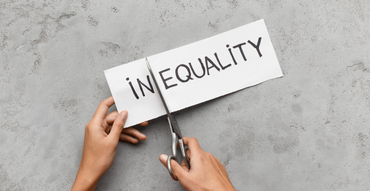Globalization has had positive effects, pulling a large part of the global population out of extreme poverty.
But for part of our societies, globalization now represents:
- the fear of their jobs being taken by machines;
- the threat of unemployment because of competition from cheap workforces and freer trade;
- the impression of contributing to public services through tax while seeing the richest shirk their responsibilities through tax avoidance and optimization.
All around the world, we are seeing expressions of a sense of injustice from those who feel left behind by globalization.
The incomes of the 10% richest people have grown fast. The proportion of the population living in extreme poverty fell from 52% in the early 1980s to less than 10% in 2018.
The G7 countries represent 50% of the global economy and we share the values of freedom and democracy.
We face the same global challenges: economic disparities, environmental degradation, international crises, corruption, and violence against women and minorities. We need to provide joint, tangible responses.
Our priority : combating inequality.
The aim is not to abandon globalization (which has helped lift millions of people out of extreme poverty), but rather to better regulate it so that nobody is left behind.
We have five priorities in the fight against inequality:
1. Fighting inequality of opportunity, so that everyone has a chance regardless of their gender and origins

2. Fighting inequality related to environmental degradation

3. Security and counter-terrorism

4. Fighting inequality through digital development and artificial intelligence

5. Combating inequality through a renewed partnership with Africa

